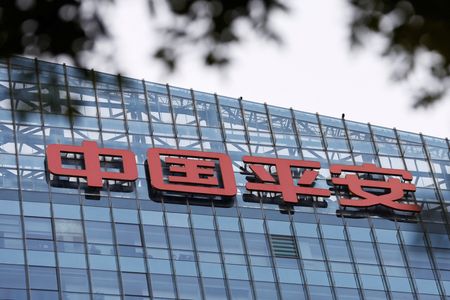By Yuka Obayashi and Katya Golubkova
TOKYO (Reuters) -The weaker yen risks hurting the Japanese economy by boosting energy prices and accelerating inflation, Mitsubishi’s CEO said on Thursday, and may raise obstacles to investments abroad that are essential for business growth.
The yen has fallen to 34-year lows this year as the Bank of Japan continues to keep interest rates low, causing investors to buy currencies with higher yields. For Japanese consumers, the weaker currency makes commodities that are typically priced in dollars more expensive.
“The current depreciation of the yen will actually lead to soaring prices for Japan’s resources and energy, and lead to inflation,” Mitsubishi CEO Katsuya Nakanishi said at a briefing after the company released its annual results.
“The yen represents national power, so the depreciation of the yen also means that national power is weakening.”
He added that while weaker yen is supportive for corporate profits since commodities from overseas projects can be sold for more of the Japanese currency, it could be a negative factor for merger and acquisition deals abroad, making Mitsubishi cautious about future investments.
For Mitsubishi, foreign business is a key area for growth.
It is forecasting profits of over 1 trillion yen for the period after the fiscal year ending in March 2025. That is based on the expansion of its liquefied natural gas (LNG) business, new fuels such as green hydrogen, minerals resources key for the energy transition including copper and as past investments such as the awaited launch of LNG Canada will start paying off.
Mitsubishi forecasts an average yen rate for the current fiscal year at 143 per U.S. dollar, up from 144.59 yen last year, higher than 155.4 per dollar on Thursday.
For Mitsubishi, a shift of 1 yen in exchange rate results in a 5 billion yen fluctuation in financial results. Its peer Mitsui, which forecasts the yen at 145 per dollar, forecasts this change at 3.4 billion yen.
Mitsubishi reported net profit for the fiscal year ended in March fell 18.4% from a year earlier to 964 billion yen ($6.2 billion) on lower Australian metallurgical coal prices, among other factors, missing a forecast of 979 billion yen profit from a LSEG poll of analysts.
The company expects net profit for the year ending in March 2025 to be 950 billion yen and plans to boost its dividend payout in the current fiscal year to 100 yen per share from 70 yen per share for the year ended in March.
($1 = 155.9300 yen)
(Reporting by Katya Golubkova and Yuka Obayashi; Editing by Jamie Freed and Christian Schmollinger)










